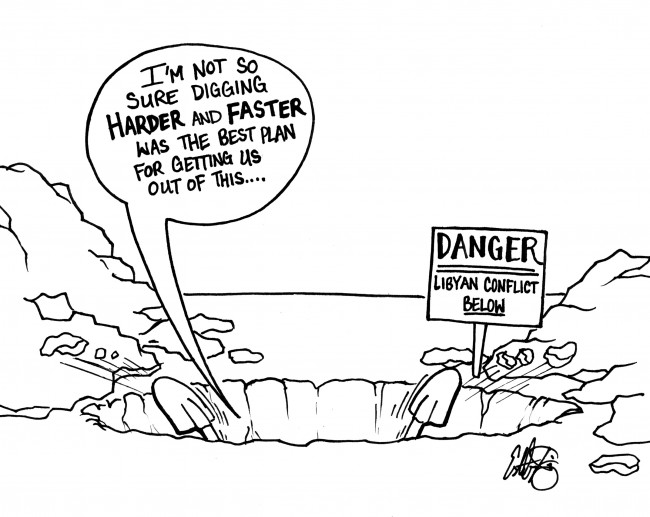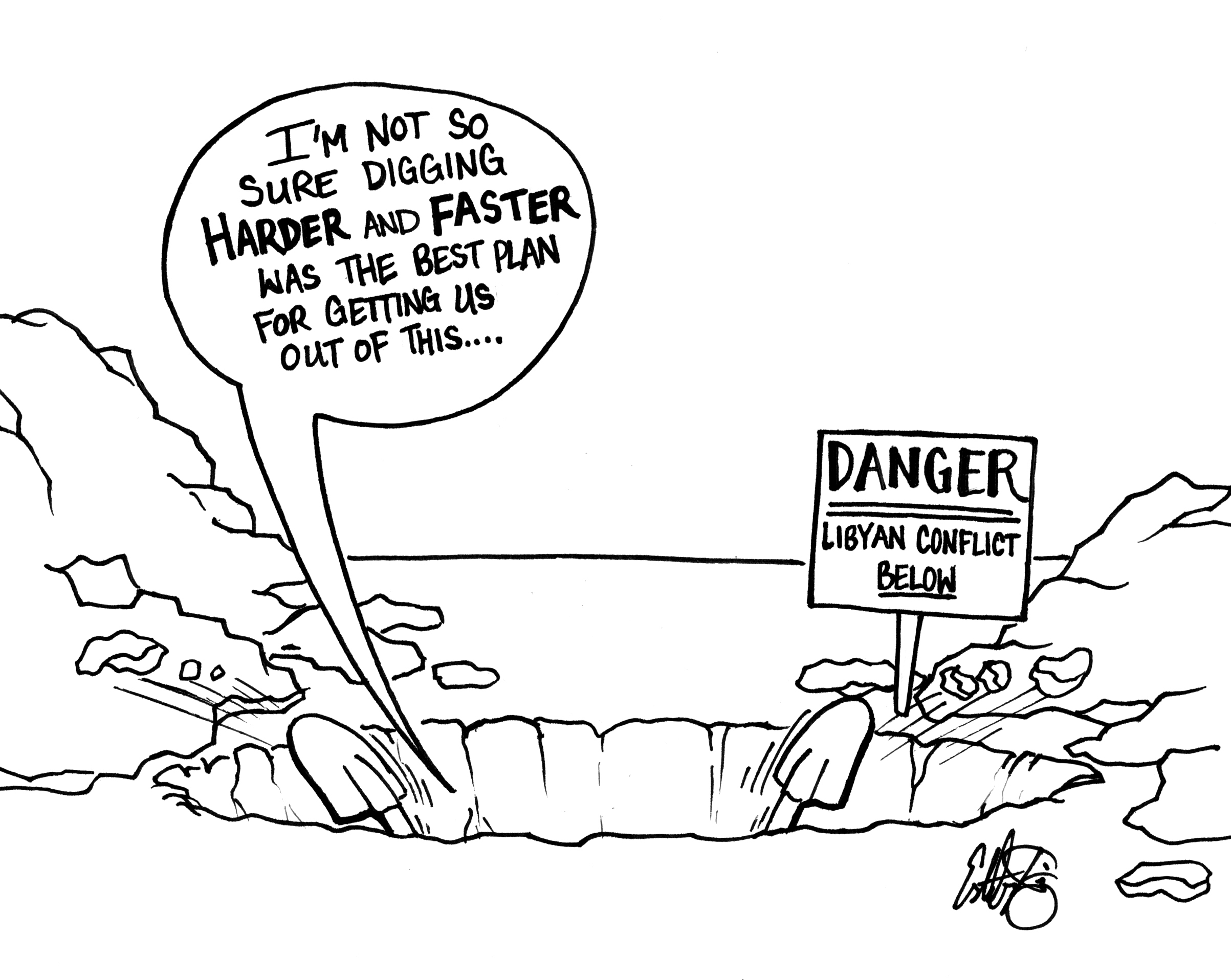
News hit Monday that America was taking steps back and sinking into a support role in the ongoing Libyan conflict. Many will balk at the idea of America not jumping directly into the problem and not using its influence and affluence to quickly further democracy.
The American military pulled its 90 warplanes from front-line missions in Libya, diminishing the number of planes enforcing the no-fly zone from 206 to 116. The American planes, once responsible for ground attacks and interception missions, will switch to support missions.
According to the Associated Press, the other NATO allies from here on out will perform all offensive attacks.
Due to the U.S. removal of itself from the Libyan airspace, NATO has subsequently requested that America maintain its leadership presence within Libya. This request once again raises the question of what America’s next step should be within this conflict.
It seems, however, that the best step to take is to not take one at all. The most beneficial role for America to play is that of the passive supporter, backing with military strength when necessary, yet allowing NATO to take the primary leadership role. There would be many consequences if America were to renew its military investment in Libya.
First, President Barack Obama has treated this situation in a manner that is foreign to normal international relations. America has always been the first to action in the world’s times of great need — and our presence in natural disaster relief should remain prominent. In this and other Middle Eastern situations, however, America ought to be looking for a more global approach. That is, America should be quick to include other world leaders in the pursuit of democracy. Obama’s actions so far promise a more innovative approach that will allow other global leaders to drive the growth of democracy.
If we were to simply abandon this path, we will be back in our old ways — committing blindly, hoping for the best and spending more than necessary.
According to the Congressional Research Service, in 2010 Congress approved a total of $1.121 trillion for military operations, base security, reconstruction, foreign aid, embassy costs and veterans’ health care for the operations in Afghanistan and Iraq initiated since the 9/11 attacks.
A new way of handling foreign relations is definitely necessary. Obama, in his handling of Libya’s revolution, has finally fully committed to a subtler role. Whether that decision will work for the best this time is up in the air, but one thing is for sure: If we don’t step back, we will eventually crumble under too many financial pressures.
A second consequence to remaining an attack-oriented ally in Libya would be that the no-fly zone enforcing aircrafts would simply not be enough to further the cause of the Libyan rebels. The no-fly zone was a tactic used when attempts were being made to oust Moammar Gadhafi.
Gadhafi has made it clear that he has no plans of giving up his power anytime soon. Thus, the next logical step for American intervention had we stayed the dominant party in the conflict would have been the provision of arms to Libyan rebels.
Providing weapons presents even more problems. Aside from the U.S. being hesitant to enter into yet another conflict with no clear exit strategy, a fundamental problem with giving rebels weapons is the lack of accountability.
There is no clear leadership within the rebel parties and it is unlikely that there will be soon. The New York Times reported that three of the top contenders to lead the new government met with rebellion leaders and a screaming match ensued. Unable to come to any decisions, the rebels are still without a leader.
Even more unsettling are the rumors that there are suspected terrorists within the rebel groups. So there is a chance that they would be receiving American weapons that they could turn upon Americans.
Finally, we simply do not have the funds to support another endeavor into a conflict that is not our own. There are other NATO countries that are more than capable of supporting the overthrow of Gadhafi. When we are facing a budget crisis within our own borders, the looming possibility of congressional deadlock far outweighs a deeper and more comprehensive role in the Libyan conflict.






